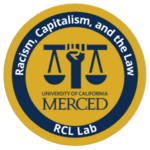In the spring of 2014, President Obama’s administration reached a landmark of over 2 million deportations—more in under six years than the sum total of all deportations prior to 1997. Mass deportation has not affected all communities equally: the vast majority of deportees are Latin American and Caribbean men. Today, nearly 90 percent of deportees are men, and over 97 percent of deportees are Latin American or Caribbean. This article explores the global context under which mass deportation has occurred and draws parallels with mass incarceration. Whereas other scholars have characterized mass deportation as a tool of social or migration control, this article argues that mass deportation is best understood as a racialized and gendered tool of state repression implemented in a time of crisis. I argue that the confluence of four factors has created the conditions of possibility for mass deportation from the United States: (1) nearly all deportees are Latin American and Caribbean men; (2) the rise of a politics of fear in the aftermath of the attacks of September 11th; (3) the global financial crisis; and (4) the utility of deportees.
- Home
- Incarceration Deportation
Incarceration & Deportation
When the local police cooperate with immigration authorities, arrest on suspicion of any crime can lead to deportation.
Deportations from the United States reached record highs in the aftermath of the Great Recession (2007-2009). At the peak of this wave of deportations, over 400,000 people were deported from the United States—as many in 1 year as in the entire decade of the 1980s. The majority of these deportees have U.S. citizen family members, nearly all of whom continue to live in the United States. Over 90% of these deportees are men, and nearly all are sent to Latin America, creating gendered and raced consequences for specific communities. This article draws from interviews with 27 people from California who experienced the deportation of a family member to provide insight into the effects of deportation on these families. This article builds on scholarship on the collateral consequences of incarceration to enhance our understanding of the collateral consequences of deportation. The findings reveal that family members face short, medium, and long-term consequences in the aftermath of a deportation and that many adolescents are forced to make an abrupt transition to adulthood when one or both of their parents is deported.
Research on the impacts of incarceration and deportation describes the negative consequences for children and young people. But how these events impact adults and members of extended families has not been broadly considered. And no study has directly compared incarceration with deportation. The study described in this essay, based on interviews with 111 adult individuals with a family member deported (57) or incarcerated (54), reveals how these experiences have long-lasting emotional and financial impacts and considers the similarities and differences between incarceration and deportation. The deportation or incarceration of parents is devastating; yet the absence of other relatives such as sons, sisters, brothers, aunts, cousins, grandchildren, and other household members also translates into severe sentimental and economic hardships not only for the immediate but also for the extended family.

